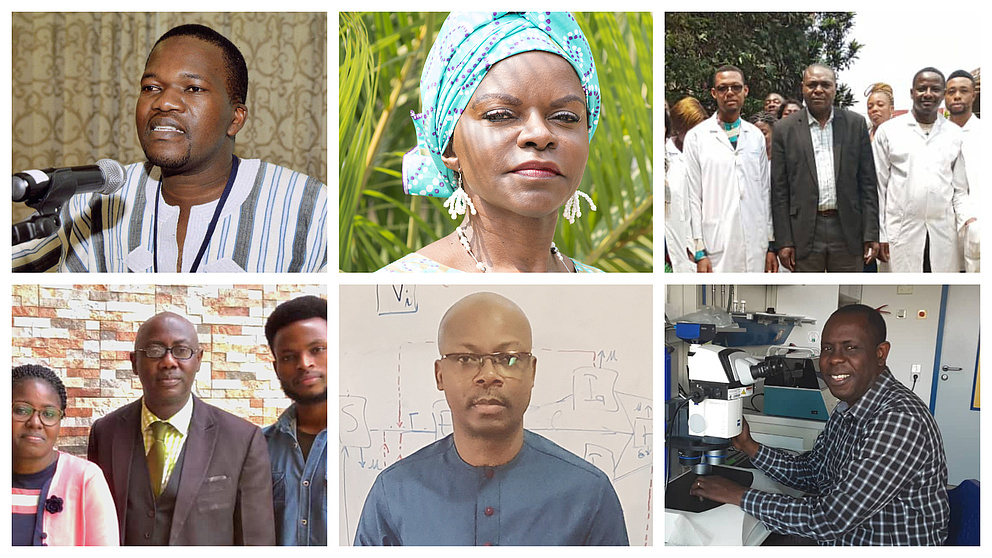

Contact
Press, Communications and Marketing
Tel.: +49 228 833-144
Fax: +49 228 833-441
presse[at]avh.de
The Alexander von Humboldt Foundation has been funding six Humboldt Research Hubs in Africa since 2021. A positive interim scientific assessment by the Fraunhofer Institute for Systems and Innovation Research ISI recommends continuing this funding until the end of 2026. Despite difficult starting situations and, in some cases, extremely precarious framework conditions, the research hubs have been able to establish research centres that have very strong national and international research connections, develop high visibility and offer an important platform for young researchers in particular, the assessment noted.
Researchers from the African Humboldt Network head the research hubs in Benin, Cameroon, the Republic of the Congo, Nigeria (2) and Zimbabwe. Their work aims to produce research findings on location that will help cope with pandemics and develop strategies to increase the resiliency of African nations when dealing with future crises.
Examples that illustrate how flexible the heads of the hubs proceed and how important local basic research is include efforts to combat the latest variant of the mpox virus (previously called monkeypox) that is currently spreading. Here, one of the research hubs in Nigeria has a sizable collection of samples from wild animals, giving it access to the natural host of the virus that has been used since 2022 to conduct deeper analyses of mpox. This flexibility is also demonstrated by the research hub in the Republic of the Congo which has shifted the focus of its work from Covid-19 to other infectious diseases such as mpox and malaria.
According to the assessment, the research hubs have produced substantial achievements with respect to building research collaborations and networking, the research findings generated to date, and the boosting of research know-how in Africa. Just under 50% of all young researchers at the research hubs are women. The trusting collaboration between African and German partners has grown or been continued, the assessment noted. By adding a second research field, a hub can even contribute to the strategic development of the university where it is located. The various instances of successful South-South networking are noteworthy and important for the programme’s sustainability. There is scientific collaboration between the hubs and with researchers from other African nations. A network conference in Cameroon which all research hubs will attend is planned for November 2024.
The assessment also comments on the challenges that many researchers in Africa face: In many cases, difficult socio-economic and security conditions, frequent power outages or delays and problems when applying for an entry visa for Germany hamper the hubs’ work and international collaborative activities. Added to this, they must also deal with bureaucratic hurdles (that are not limited to Africa), such as local or university regulations that complicate the use of funds, delays in the procurement or ordering of equipment, or a lack of support from the university administration. The heads of the research hubs have responded in creative ways to such obstacles. For example, they have initiated new collaborations with other African research institutes, strengthened their expertise in administering their funding, or procured solar power systems.
The research hubs receive up to €750,000 in funding over a maximum period of five years. Germany’s Federal Foreign Office provides funding for five of the six research hubs. One of the research hubs receives funding through a cooperation agreement with the Bayer Foundation. Following this positive interim assessment, all six research hubs will continue to receive funding for a total of five years. The selection committee’s assessors also recommend continuing the programmes even beyond the five-year funding period. Due to the current budget situation, it is not possible at present to hold out the prospect of a new call for applications for Humboldt Research Hubs.
Every year, the Alexander von Humboldt Foundation enables more than 2,000 researchers from all over the world to spend time conducting research in Germany. The Foundation maintains an interdisciplinary network of well over 30,000 Humboldtians in more than 140 countries around the world – including 63 Nobel Prize winners.
